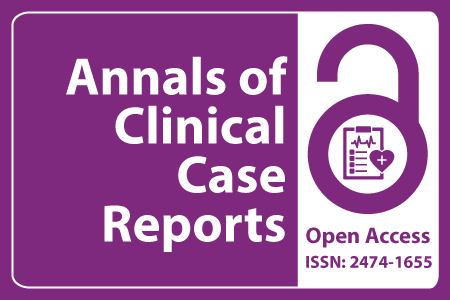
Journal Basic Info
- Impact Factor: 1.809**
- H-Index: 6
- ISSN: 2474-1655
- DOI: 10.25107/2474-1655
Major Scope
- Asthma
- Sports Medicine
- Genetics
- Vascular Medicine
- Physical Medicine & Rehabilitation
- Lung Cancer
- Hepatitis
- Nephrology
Abstract
Citation: Ann Clin Case Rep. 2023;8(1):2424.DOI: 10.25107/2474-1655.2424
Fat Necrosis of the Breast Associated with Anticoagulant Use: A Case Report
Marçal MB1*, Novita G2, Vargas JC3, Corpa M4, Bagnoli F5 and Cavalcante FP6
1Department of Breast Diseases, Hospital Paulistano, Brazil
2Hospital Israelita Albert Einstein, Brazil
3Department of Hematology, Americas Oncology and Hematology, and Hospital Paulistano, Brazil
4Department of Pathology, Hospital Israelita Albert Einstein and Laboratório Bacchi/Beneficência Portuguesa de São Paulo, Brazil
5Santa Casa de São Paulo and Hospital Israelita Albert Einstein, Brazil
6Department of Breast Diseases, Hospital Geral de Fortaleza, Brazil
*Correspondance to: Marcela B Marçal
PDF Full Text Case Report | Open Access
Abstract:
Breast necrosis is a rare complication of the use of anticoagulants. The few reports in the literature are mostly related to the use of warfarin. In general, treatment is conservative; however, surgical debridement may be required, and, less commonly, a mastectomy may be necessary. In the present case, not only was breast necrosis induced by anticoagulant use, but the drug in question was a direct thrombin inhibitor and the condition progressed to an advanced/severe stage. This article reports on a 64-year-old Brazilian woman who presented with breast necrosis following treatment for pulmonary thromboembolism with the new anticoagulant agent dabigatran. The advanced stage of the necrotic process required a mastectomy. The patient was discharged from hospital in a good state of health and in preventive use of the anticoagulant rivaroxaban. Since then, the patient has been followed up every six months with no complications being recorded. Direct thrombin inhibitors (the anticoagulant class of dabigatran) and direct factor Xa inhibitors (rivaroxaban) are now widely used as oral anticoagulants. Among the known adverse events of dabigatran, the occurrence of hematomas is described as infrequent and the likelihood of skin necrosis is not listed. This report highlights that the use of anticoagulants, either warfarin-based or thrombin inhibitors, represents a risk factor for skin necrosis. Treatment of this complication involves discontinuing the anticoagulant and later substituting the drug for one of another class. When the clinical presentation is more aggressive, more invasive treatment measures may be required and a differential diagnosis has to be made with malignant conditions.
Keywords:
Cite the Article:
Marçal MB, Novita G, Vargas JC, Corpa M, Bagnoli F, Cavalcante FP. Fat Necrosis of the Breast Associated with Anticoagulant Use: A Case Report. Ann Clin Case Rep. 2023; 8: 2424.













